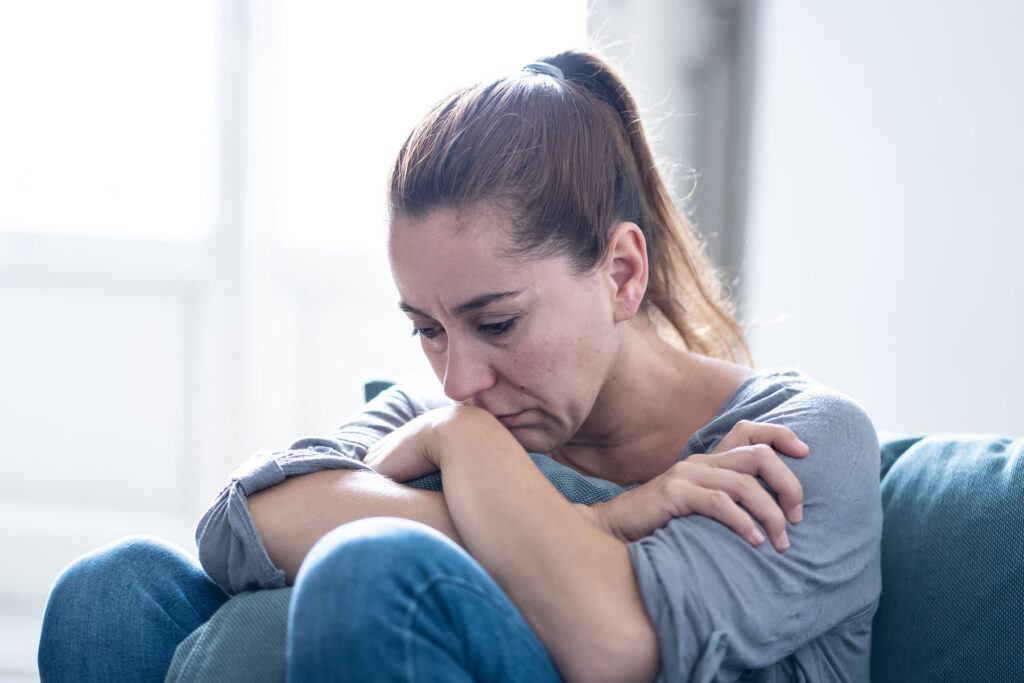As with all chronic conditions, relapse is common after addiction treatment. It doesn’t mean that treatment was unsuccessful, but therapies and techniques may need to be adjusted. Programs that include relapse prevention therapy may help clients avoid emotional relapse and meet their recovery goals.
Avoiding drugs and alcohol after treatment doesn’t happen by accident or by sheer willpower. In fact, abstinence takes planning. Understanding the stages of relapse is an important part of maintaining sobriety. Call Promises at 844.875.5609 to learn more about our relapse prevention therapy program.
What Is Emotional Relapse?
Many addiction specialists recognize relapse as happening in three stages. Emotional relapse is first, followed by mental relapse. The last stage is physical relapse, when alcohol or substances are consumed. Approaching relapse as a multi-stage process helps people recognize warning signs and potentially avoid physical relapse.
During an emotional relapse, individuals may not be fully aware that they’re considering ingesting alcohol or other substances. Some signs of emotional relapse include:
- Poor self-care
- Mood swings
- Avoiding support meetings or not participating in them
- Shutting down emotionally
- Changing sleeping or eating habits
- Isolating
- Feeling angry, fearful, or sad without knowing why
In this stage, a person is vulnerable to returning to substance use. If they recognize the warning signs, they have a good chance of continuing in recovery.
The difference between emotional and mental relapse is subtle. Emotional relapse is identified by feelings—feelings the individual may at first be unaware of. Mental relapse deals with thoughts. Thinking about drinking or recalling the supposedly good times before recovery are warning signs of mental relapse.
Avoiding Physical Relapse: What Comes Next?
Once you recognize that you are having an emotional relapse, it’s time to take action. Early intervention can break the cycle of repeated treatment and relapse periods.
Remember these effective strategies for staying strong in your recovery after acknowledging an emotional relapse:
- Reach out to your support system and share what’s going on
- Practice stress-reduction techniques such as meditation or exercise
- Attend and participate in peer support meetings
- Engage in self-reflection exercises such as journaling
- Make self-care a priority
- Spend time with supportive friends and family
What if you’re unable to stop the cycle and end up having a complete physical relapse? That doesn’t mean you have failed. Remember that relapsing is a common part of the recovery process.
What to Do After a Relapse
The first step in coping with a relapse is to get medical care. Many people who have been in recovery have a greater risk of overdose if they relapse. Make sure you are physically safe and healthy.
The next step is to seek support. Call your sponsor or a trusted friend. Connect with your treatment provider for information about ongoing support programs and outpatient services that will help strengthen your recovery.
Lastly, be patient with yourself. You aren’t a failure, and you deserve the good health and fulfilling relationships that come with sobriety. Falling into a spiral of shame and guilt puts you at greater risk. Accept that you’re imperfect, forgive yourself, and get back to your recovery program.
Strengthen Your Recovery With Support From Promises
Emotional relapse is the first of three relapse stages. If you stop attending support meetings or stop taking care of your health in other ways, you may be experiencing an emotional relapse. By recognizing these signs and intervening early, you can increase your chances of avoiding a physical relapse.
If you do relapse, don’t give up. Relapsing is a common occurrence in recovery, and it doesn’t mean that treatment was unsuccessful. If you need information about a treatment program or what to do after a relapse, call Promises at 844.875.5609 or fill out our online contact form.

